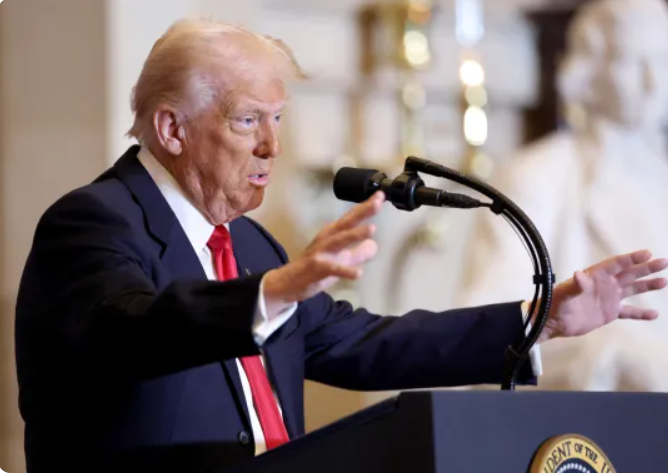By Joke Kujenya
THE UNITED States has escalated its opposition to the International Criminal Court (ICC) by imposing sanctions on officials involved in its investigations into U.S. and Israeli personnel.
U.S. President Donald Trump signed an executive order declaring a national emergency, citing what he described as the ICC’s “illegitimate and baseless” actions.
Trump’s order blocks the assets of individuals engaged in prosecuting U.S. or allied officials, including Israeli Prime Minister Benjamin Netanyahu and former Defence Minister Yoav Gallant.
“It also restricts their entry into the U.S., asserting that the ICC’s moves against these figures pose a “threat to national security and foreign policy.”
The move follows years of U.S. resistance to the ICC’s jurisdiction, as neither the U.S. nor Israel is a party to the Rome Statute, which established the court.
The Trump administration had previously imposed sanctions on ICC officials in 2020 over their investigations into alleged U.S. war crimes in Afghanistan.
The latest action extends that approach, reinforcing Washington’s stance that American and allied military personnel should not be subjected to ICC prosecution.
The ICC, based in The Hague, has faced sharp criticism from U.S. and Israeli officials for pursuing cases that they claim undermine national sovereignty.
The court’s recent arrest warrants against Netanyahu and Gallant have intensified diplomatic tensions, with both countries rejecting the ICC’s authority over their leaders.
Trump’s executive order explicitly prohibits any financial transactions with sanctioned ICC personnel and warns that violators could face legal consequences. It further mandates the U.S. Treasury Department to identify additional individuals who may fall under the sanctions.
The executive action aligns with the 2002 American Servicemembers’ Protection Act, which Congress enacted to shield U.S. military and government officials from foreign prosecution.
The law explicitly states that the U.S. government does not recognise ICC jurisdiction over its citizens and that any legal action against American personnel would be considered a violation of U.S. sovereignty.
Israel has welcomed Trump’s decision, with government officials calling it a “strong message” against what they term as politically motivated prosecutions.
The U.S. has also urged its allies to reject ICC jurisdiction over their nationals.
While the immediate past Biden administration lifted some of Trump’s previous sanctions on ICC officials in 2021, this new order revives concerns over the U.S. approach to international accountability.
Meanwhile, human rights organisations have condemned the sanctions, arguing they undermine global justice efforts and set a precedent for impunity.
They noted that with the Trump administration’s position firmly against ICC jurisdiction, legal experts predict that the sanctions could spark further diplomatic challenges.





